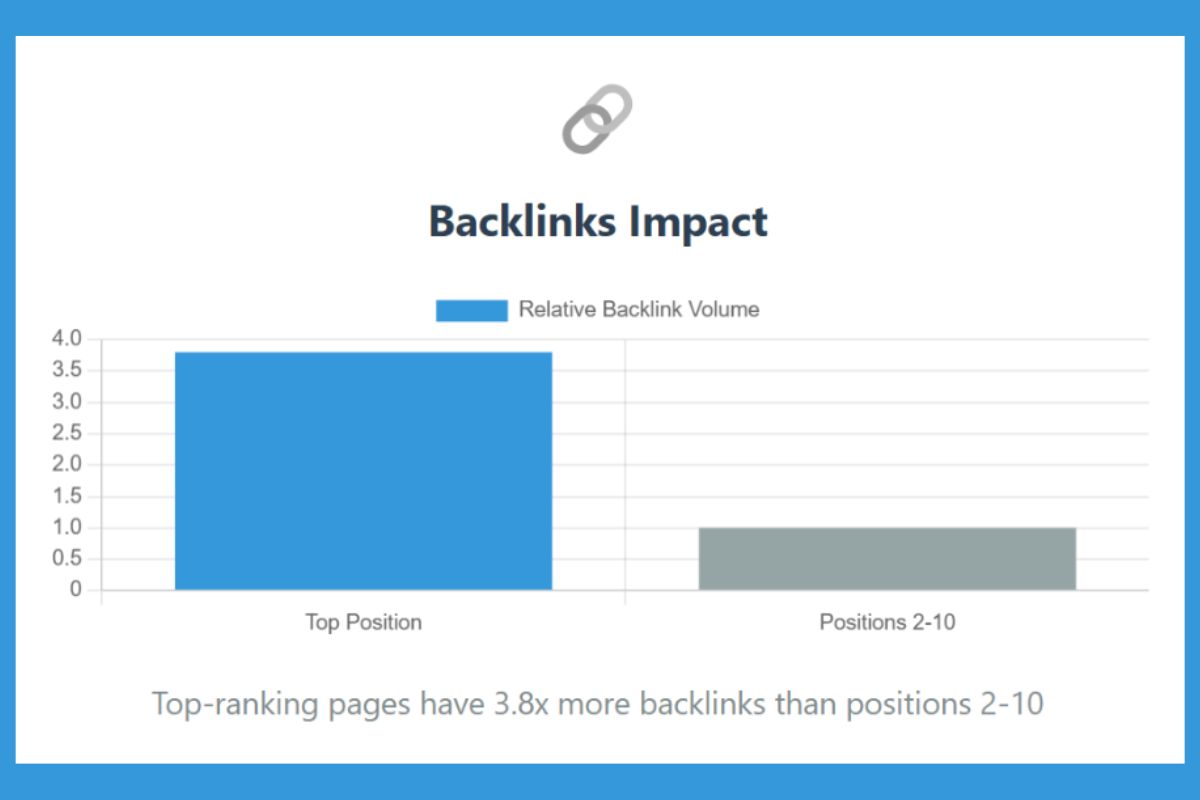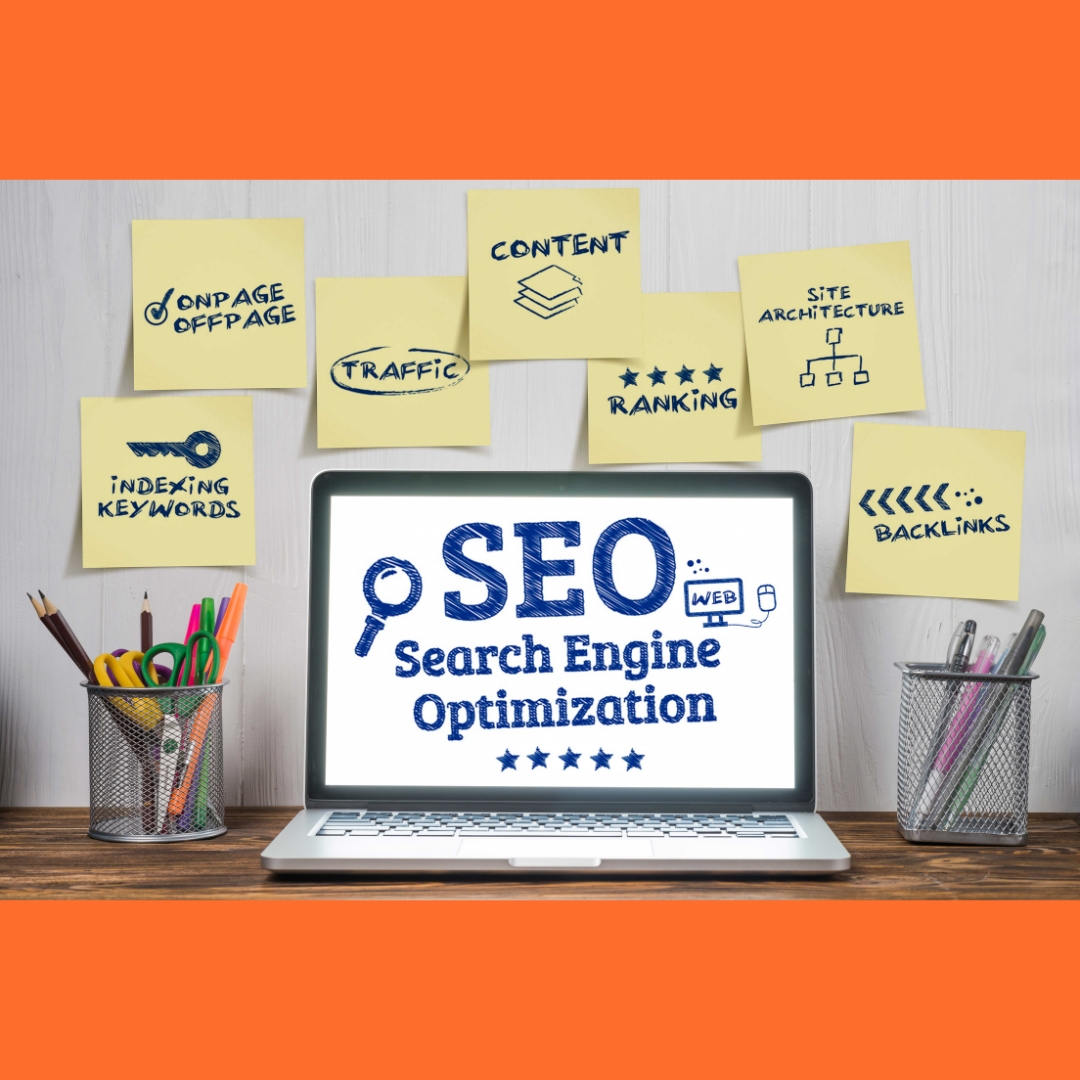Top SEO Ranking Factors That Determine Your Position on Google
Your website’s position in Google search results matters more than you might think. When people search for local businesses, 90% of them never look past the first page of results. This is where Search Engine Optimization (SEO ranking) comes in. Want to get your business found online? Read on!
Think of SEO as placing your business in the best spot in town. Just as a prime location brings more foot traffic to a store, good SEO ranking puts your website where more people can find it. What is SEO ranking? It’s how well your website matches what Google looks for when deciding which sites to show first.
We’ll walk you through the important SEO ranking factors that affect where your website appears in search results.
What is SEO Ranking?
SEO ranking is the position of a website on search engine results pages (SERPs) for specific keywords or queries. This ranking influences how visible and accessible your site is to potential visitors. For instance, a higher placement on the first page of Google typically leads to increased clicks and traffic to your site.
Search engines like Google evaluate various aspects of your site to assess its relevance and value for user queries. These factors include content quality, keyword usage, and technical SEO.
Being familiar with the key SEO ranking factors enables you to optimize your site effectively, attracting both search engines and by that – users too. A robust SEO foundation increases your chances of achieving higher rankings and maintaining long-term visibility.
How Google Rankings Work
Google’s ranking process relies on a sophisticated algorithm that evaluates websites using a blend of crawling, indexing, and ranking. It begins by crawling web pages to discover content, followed by indexing them in its vast database for easy retrieval. Finally, Google ranks these websites based on more than 200 ranking factors, assessing their relevance and quality.
The “200 ranking factors” encompass a broad set of criteria used by Google’s algorithm to evaluate and rank websites on search engine results pages. These factors assess the relevance, quality, and usability of a webpage to determine its position in search results (comparing it to other websites offering similar or same content). While Google does not disclose all the specifics, their employees more or less provide certain comments where you can determine what’s important. Besides this, understanding the SEO terminology and learning how top SEO professionals do their magic, helps you get the picture about how the rankings processes work, or at least what works when trying to rank high!

At the heart of Google’s ranking system are user intent and content relevance. Websites that provide clear, valuable, and relevant answers to user queries are rewarded with higher positions in SERPs. Additionally, technical factors like a well-organized website structure and mobile-friendliness, getting links from valuable websites, having your website listed on prominent business platforms, etc, play a crucial role in influencing rankings.
The key to ranking high on search engines is optimizing the website from all important perspectives. By understanding how Google evaluates your site, you can align your on-page and off-page elements with its algorithm. This alignment not only boosts your chances of appearing on the first page but also enhances your overall visibility. Indexed Zone SEO can help you improve your SEO ranking by offering the best strategies for optimizing Google SEO ranking factors.
What Makes Google Rank Your Website?
When it comes to search engine optimization ranking factors, Google prioritizes several key elements that significantly influence your website’s position in the SERPs. The most important of these include:
High-Quality Content
Creating high-quality content involves developing articles, blog posts, or other digital materials that provide real value to readers. This content should be engaging, well-researched, and free from errors, addressing the specific needs and pain points of your target audience. By aligning your content with user search intent, you can reduce bounce rates and increase engagement metrics which are factors that Google considers when ranking websites.
Relevance
Google’s algorithm is designed to match content with user queries effectively. Your website must feature material that is not only relevant to your audience’s searches but also incorporates appropriate keyword usage. This includes naturally placing primary keywords in titles, headers, and body text, along with related terms and phrases. Keeping your content updated to reflect current trends and user expectations is also essential for maintaining relevance.
Technical Optimization
Technical factors play a critical role in how Google evaluates your site. Ensuring mobile-friendliness allows users to navigate your website easily on any device, while optimizing for fast website speed reduces page load times, enhancing user satisfaction. Additionally, implementing structured data (like schema markup) helps search engines better understand your content, increasing the chances of earning rich snippets and improving visibility in the SERPs.

Understanding these factors that influence SEO is crucial for building a website that ranks well. Besides strategies to boost organic traffic by addressing high-quality content, relevance, and technical optimization, you not only improve your visibility but also enhance the user experience, which can indirectly boost your rankings.
What is E-E-A-T and Why It Matters?
E-E-A-T stands for Experience, Expertise, Authoritativeness, and Trustworthiness, and it is a critical concept in Google’s ranking system. It reflects how Google evaluates the quality of content and the credibility of the website or individual producing it.
Experience
Google values content that reflects first-hand experience with the subject matter. This means that creators who have directly engaged with the topic – such as using a product, visiting a location, or participating in an event – are more likely to produce content that is accurate, insightful, and trustworthy. Sharing personal experiences, anecdotes, and original insights can enhance your content’s credibility and appeal, leading to improved search rankings.
Expertise
Google rewards content created by subject matter experts, particularly for sensitive topics like health, finance, or legal advice. Demonstrating credentials, professional experience, or industry knowledge can significantly enhance your site’s reputation and ranking potential.
Authoritativeness
This refers to the overall authority of your website within its niche. Authoritativeness is established through backlinks from high-quality, relevant websites and mentions in reputable publications. A strong online presence, combined with a consistent delivery of valuable content, enhances your site’s authority.
Trustworthiness
Trustworthiness ensures that users feel secure when visiting your website. This can be achieved through transparent sourcing, using secure HTTPS protocols, having clear privacy policies, and maintaining a user-friendly design. Incorporating author bios and references for claims further builds trust with your audience.
An example of E-A-T in action could be a finance blog authored by a certified financial planner, with sources linked to well-known financial institutions. Demonstrating E-A-T helps your site align with Google’s ranking factors, contributing to higher visibility and credibility.
On-Page SEO Ranking Factors
On-page SEO focuses on optimizing elements directly on your website to improve rankings. Here are the essential SEO ranking factors on page to consider:
Keyword Optimization:
Keywords form the foundation of SEO. Using primary and related keywords in titles, headers, and body text helps search engines grasp the context and relevance of your content. Avoid keyword stuffing, which is the excessive and unnatural use of keywords, as it can harm your rankings. Instead, focus on placing keywords naturally within your content. This ensures that it reads smoothly for users while signaling relevance to search engines. A balanced approach enhances both user experience and SEO effectiveness.
Website Structure and Navigation
A well-organized website benefits both users and search engines. Clear menus and breadcrumbs, along with a logical hierarchy, help users quickly find the information they need. For search engines, a clear structure ensures efficient crawling and indexing of your pages. Additionally, including internal links between related pages enhances navigation and boosts SEO by distributing link equity throughout your site. This thoughtful organization creates a better experience for visitors and supports your overall search strategy.
Content Depth and Comprehensiveness
Detailed and well-researched content is essential for meeting user search intent. By covering all aspects of a topic, your content can address more queries and attract a diverse audience. Comprehensive content often results in longer time-on-page metrics, indicating its value to users. For instance, adding FAQs, case studies, and related insights can make your content more robust and engaging. This approach not only enhances user experience but also improves your site’s relevance in search results.

Image Optimization
Visuals significantly enhance content quality, but they must be optimized for performance. Using descriptive alt tags benefits visually impaired users and gives search engines more context about your content. Compressing image file sizes reduces page load times, which is vital for both user experience and SEO. Additionally, including images that directly relate to the topic helps maintain user engagement. This thoughtful optimization ensures that visuals contribute positively to your overall site performance.
Mobile-Friendliness
Mobile optimization is essential because most users now access websites from smartphones or tablets. Ensuring your site is responsive—adapting seamlessly to various screen sizes—is crucial for delivering a positive experience. Features like easy-to-read text, touch-friendly navigation, and fast loading times are vital. Mobile-friendly websites have become a key SEO ranking factor, as Google prioritizes them in its mobile-first indexing. By focusing on mobile usability, you enhance both user satisfaction and your search visibility.

Technical Factors
Technical performance plays a crucial role in on-page SEO. Website speed directly impacts user satisfaction, as slow-loading pages can lead to higher bounce rates. Metrics evaluate critical factors such as loading performance (Largest Contentful Paint), interactivity (First Input Delay), and visual stability (Cumulative Layout Shift). Furthermore, a secure connection (HTTPS) fosters trust with users and is a recognized ranking factor, making SSL certificates essential for any website. Prioritizing these technical aspects enhances both user experience and search engine visibility.
By addressing these on-page SEO ranking factors, you can create a seamless user experience that aligns with search engine requirements, thereby improving your website’s overall performance. To ensure you’re on the right track, explore questions to ask an SEO consultant for expert guidance.
Off-Page SEO Ranking Factors
Off-page SEO involves actions taken outside your website to enhance its authority and relevance in search engine rankings. These external factors play a crucial role in establishing your site’s credibility and visibility. Key off-page SEO factors include:
Backlinks
Backlinks, or inbound links, are powerful off-site SEO ranking factors. Search engines see backlinks as endorsements of your website’s quality. Links from authoritative and relevant sites matter the most, enhancing your domain authority and ranking potential. However, low-quality or spammy links can harm your site. Therefore, it is essential to focus on earning links organically. You can achieve this by creating high-quality content and engaging in outreach efforts.

Domain Authority
Domain authority measures your website’s strength and credibility within its niche. This score, developed by SEO tools, considers factors such as your backlink profile, content quality, and website age. A site with high domain authority is more likely to rank well in search results. Improving your domain authority is crucial for your off-page SEO strategy. Focus on building quality backlinks and creating valuable content to enhance your site’s credibility over time.
Social Signals
Social signals refer to engagement on platforms like Facebook and Twitter, including shares, likes, and comments. Although these signals do not directly influence rankings, they can indirectly boost your SEO. Active promotion on social media increases the visibility of your content and enhances the chances of earning backlinks from other websites. By fostering social engagement, you support your overall SEO efforts. Consider sharing valuable content regularly to attract attention and encourage interactions.
Brand Signals
A strong brand presence online is a crucial off-page factor. When users frequently search for your brand or mention it across the web, search engines recognize your site as a trusted authority. This recognition can positively influence your rankings over time. Building brand signals involves consistent engagement with your audience and maintaining a professional online image. Focus on delivering value to your users, as this helps establish trust and credibility.
Local SEO Factors
For businesses focusing on a specific geographic area, local SEO is essential. Key actions include optimizing your Google Business Profile, earning positive reviews, and maintaining consistent NAP (Name, Address, Phone Number) citations across directories. These local SEO ranking factors can significantly boost your visibility in local searches. By enhancing your local presence, you increase your chances of appearing in local search results, including the coveted Google Map Pack. Prioritize these strategies to effectively reach your target audience.

Building a strong off-page SEO strategy not only improves your rankings but also reinforces your website’s reputation as a reliable source of information. To ensure you’re leveraging the best strategies, consider learning how to choose an SEO company that aligns with your goals.
How to Monitor Search Engine Rankings
Monitoring your search engine rankings is crucial for any SEO strategy. It helps you assess the effectiveness of your efforts and identify areas for improvement. Here are some practical steps to track your performance:
- Use Analytics Tools: Utilize tools like Google Analytics, SEMrush, and Ahrefs to monitor key metrics such as keyword rankings, organic traffic, and click-through rates (CTR). These insights provide a comprehensive view of your website’s performance in search results.
- Track Key Metrics: Regularly monitor essential SEO metrics like bounce rate, time on page, and conversion rates. For example, a high bounce rate may indicate a mismatch between user intent and your content, which can affect your search engine ranking position.
- Evaluate Keyword Positions: Tools like Google Search Console can show the average position of your target keywords in search results. This allows you to focus on keywords that need improvement and adjust your strategy as needed.
- Audit Performance: Conduct routine performance audits to identify weak spots in your SEO efforts. Check for broken links, slow-loading pages, or any technical issues that could negatively impact your rankings.
By monitoring your SEO performance, you can identify the factors that influence SEO ranking and make necessary adjustments to maintain your site’s visibility. This ensures you stay ahead of competitors while keeping your website aligned with search engine requirements.
FAQ
What are the most important SEO ranking factors?
The most critical factors include high-quality content, strong backlinks, and mobile-friendliness. Content that aligns with user search intent, combined with a robust off-page SEO strategy, significantly boosts your rankings. Additionally, optimizing for technical SEO elements like site speed and HTTPS is essential.
How do I improve my SEO ranking quickly?
Quick improvements often come from optimizing for on-page SEO ranking factors. This includes updating your content with relevant keywords, improving website speed, and addressing mobile-friendliness. For businesses targeting local audiences, focusing on local SEO ranking factors, such as optimizing your Google Business Profile, can yield faster results.
What is the role of user engagement in SEO?
User engagement metrics like time on page, CTR, and bounce rate provide signals to Google about your site’s quality and relevance. A highly engaged audience indicates that your content is valuable, which can positively affect your rankings. Improving user experience through seamless navigation, faster load times, and compelling content can enhance these metrics.
What strategies can be used to build high-quality backlinks?
Backlinks are a cornerstone of off-page SEO, but the most effective strategies for building high-quality links vary depending on your niche and goals.
How does Google adapt its ranking factors to new search trends?
Google’s algorithms evolve continuously to reflect user behavior and search trends. Understanding how these changes impact ranking factors can make a significant difference in maintaining visibility. These common questions reflect the core principles of SEO success. By addressing the factors that affect SEO ranking, you can ensure steady progress in your search engine performance.


